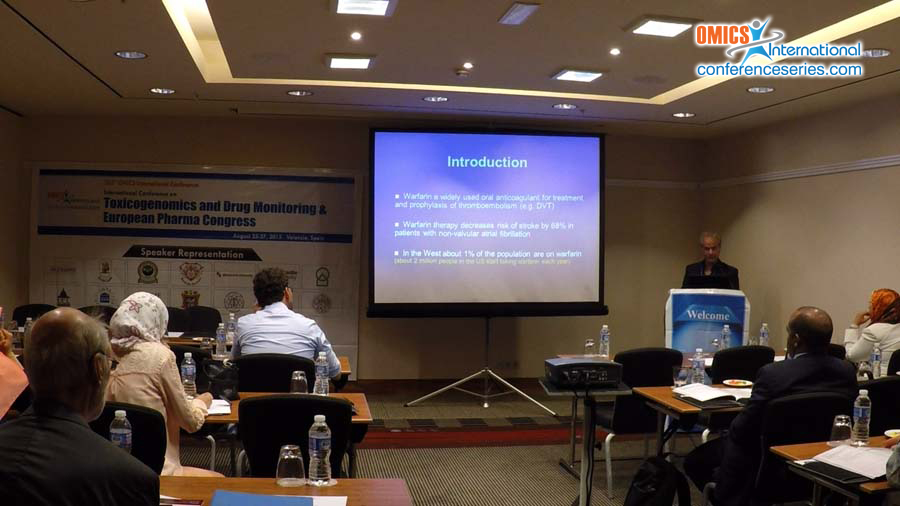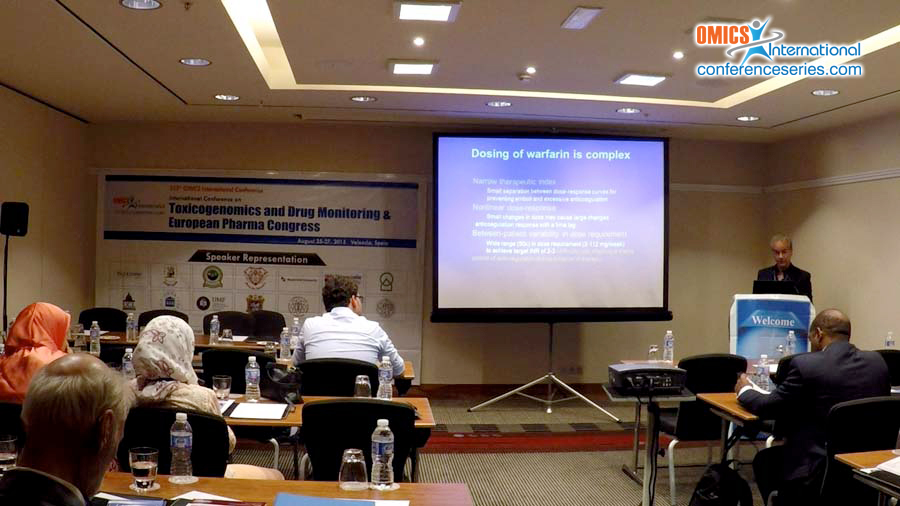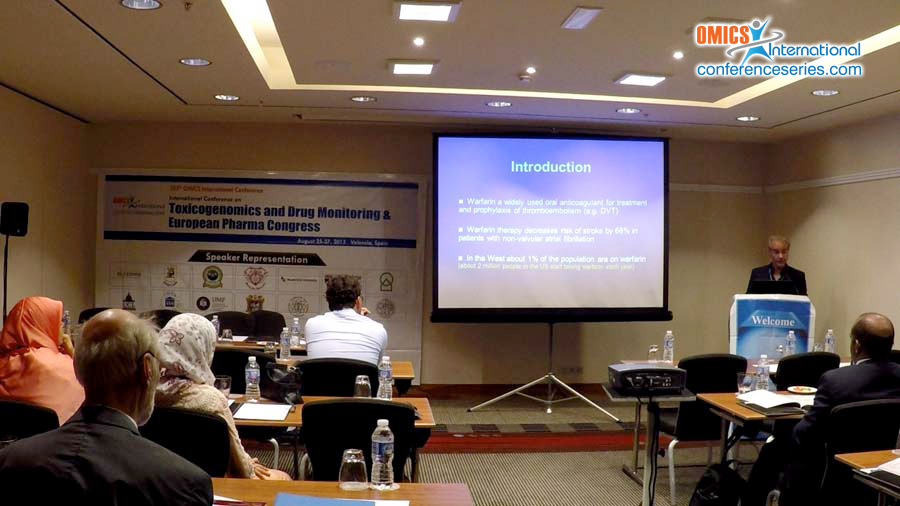
Farhad Kamali
Newcastle University, UK
Title: Involvement of genetics in poor outcomes in anticoagulation therapy
Biography
Biography: Farhad Kamali
Abstract
Warfarin is commonly prescribed for the treatment and prevention of thromboembolic disorders. Anticoagulation response to warfarin during the initiation of therapy is variable. This is mainly due to the drug’s narrow therapeutic window and the wide inter-individual variability in warfarin dose requirement which makes the prediction of an accurate dose for individual patients difficult despite the use of standard induction regimens and frequent INR monitoring. As a result, some patients who are sensitive to warfarin are at increased risk of bleeding due to over-dosing whereas some are at increased risk of thrombosis due to under-dosing. Approximately half of the variability in warfarin dose requirement is explained by patient age, body size and CYP2C9 and VKORC1 genes. A personalised approach to warfarin dosing using genetic information has the potential to improve the safety and efficacy of anticoagulation therapy. The author will be presenting the results of prospective trials exploring the potential benefits of pharmacogenetics-based therapy and the potential for future implementation of pharmacogenetics-guided therapy in the clinic setting.
Speaker Presentations
Speaker PPTs Click Here



